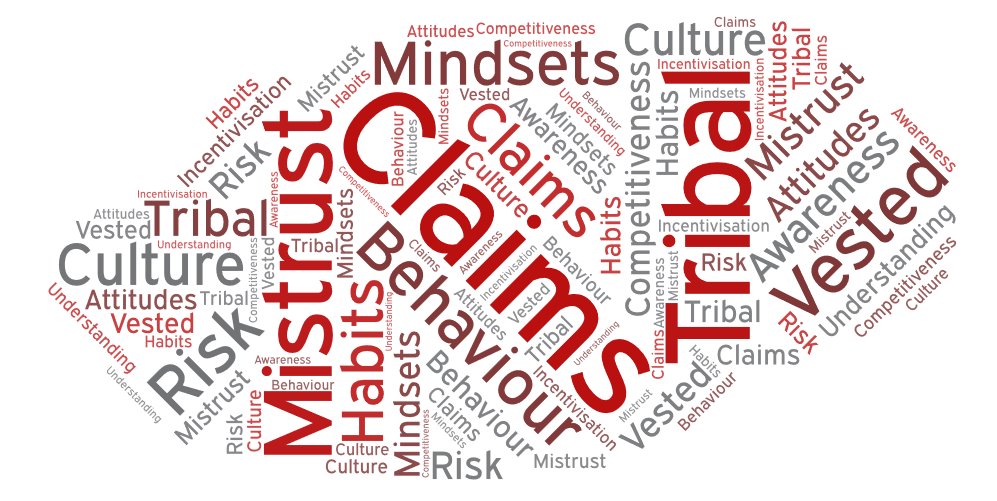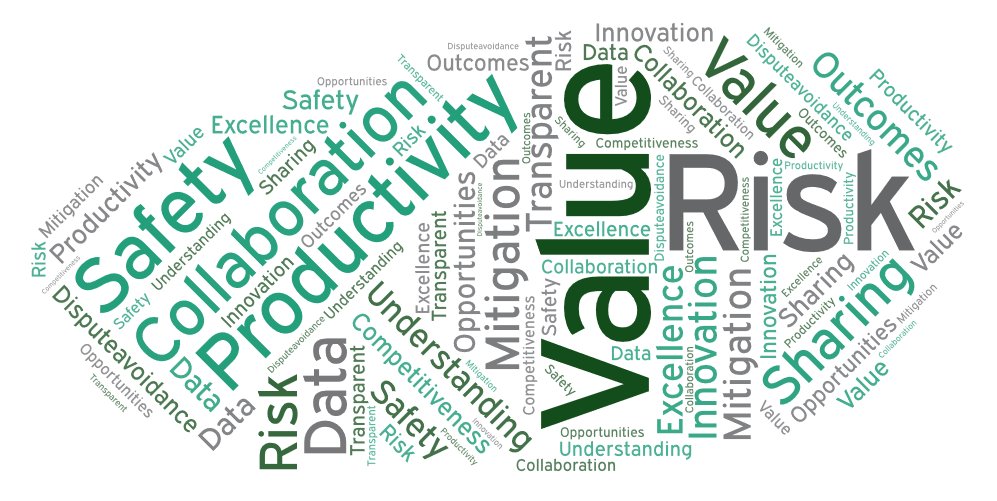Since the outbreak of COVID-19 and its effects on global Engineering Construction projects, I have held the view that the only sensible way for project stakeholders to address and resolve the challenges confronting them as a result of this pandemic is by collaborating together to find solutions that provide the most effective, productive and economic means that are fair and work for all concerned. In this context, there are two key areas that must be addressed;
- Re-commencing or continuing projects. Re-baselining in terms of project organisation, completion dates, time schedules, execution plans, material & equipment deliveries and resource loading, based upon what is needed, is realistically and reliably available and becoming available. Availability of cash will be fundamental.
- Additional costs. Realistic assessments of the additional costs involved in continuing and completing projects together with a viable apportionment of such costs based upon those stakeholders most able to bear them taking the greater amount of the burden. It is unrealistic to consider that, in the current circumstances, a single stakeholder on any project bears all the additional costs or that others will avoid bearing any.
Allowing the project challenges to escalate into disputes is unthinkable. In the UK, the Construction Leadership Council (CLC) has expressed concern “…that the construction industry will become embroiled in costly and long-running disputes over the effects of the pandemic on projects if it does not look to engage in collaborative discussions to resolve these issues…”. In this context CLC co-Chair, Andy Mitchell CBE, said: “…it is vital that we all work together to minimise potential disputes in order to secure the industry for the long-term…” – follow this link
The CLC COVID-19 Task Force has published practical guidance on how to minimise potential disputes. These were endorsed by the UK Government on 7 May 2020 to which the CLC said “…We welcome the endorsement of our approach from the UK Government in its Guidance on responsible contractual behaviour in the performance and enhancement of contracts impacted by the Covid-19 emergency…” and “…We anticipate that all businesses will understand the unprecedented situation we find ourselves in and work collaboratively…”.
While the foregoing relates to the UK construction industry, the underlying principles of avoiding disputes and litigation by finding collaboratively driven solutions, applies equally to projects undertaken by the global Engineering Construction Industry.
Collaboration is not an easy option, but it is the one most likely to achieve satisfactory and lasting resolution of the challenges currently confronting project stakeholders. For those interested in a taking a collaborative approach to resolving commercial / contractual issues on their current projects without getting into dispute, as recommended by CLC, and are unsure how to approach collaboration, then the Engineering Construction Industry Training Board (ECITB) Project Collaboration Toolkit (PCT) which embraces, amongst others, ISO 44001 and the Engineering Construction Institute’s Active Principles, could provide some useful guidance, particularly regarding the behaviours that need to be practiced in finding solutions to the challenges on projects collaboratively – follow this link
While the PCT provides the means for the collaborative procurement and running projects in replacement of traditional methods, and was not intended as a dispute avoidance process, the principles which it embraces could well be applied to finding solutions to the challenges now confronting global Engineering Construction.
However, COVID-19 is not the only crisis currently confronting the Industry. The recent collapse of the oil price has added to the burdens created by COVID-19. Investments in new projects are likely to decline significantly unless measures are taken quickly to bring down costs, reduce schedule durations and assure delivery in line with the commitments made so that realistic business cases can be established, endorsed and implemented. The traditional procurement methods that have been in use for decades will not enable these objectives to be achieved – these methods are broken beyond repair and are ineffective for addressing the challenges confronting the Industry today.
On 6 May 2020 the Engineering Construction Institute and Constructing Excellence joint Webinar: Major Projects – Driving Long Term Value Through Collaborative Procurement, addressed the actual benefits experienced by Industry of collaborative working practices over “traditional” procurement methods – significant cost reductions, shorter delivery times and dispute avoidance. In this context there are many current initiatives that are geared to the elimination of wastage, improved efficiency and greater productivity (eg. AWP, BIM, Artificial intelligence, Digitalisation, Factory Thinking, Digital Twin etc). In order to obtain maximum benefit from these initiatives collectively or individually, collaborative working is essential.
The current crisis confronting global Engineering Construction – the combined effect of COVID-19 and the Oil Price Collapse, provides the opportunity for the Industry to fundamentally change the way it undertakes projects. That change can be started immediately by stakeholders finding collaborative solutions for the re-commencement and completion of current projects – enlightened owners are taking this approach already. The learning from this experience can then be applied to new project investments to be undertaken utilising collaborative procurement and for which there is now growing support.
We only need consider how other industries, (eg, automotive, aerospace, shipbuilding etc.) embraced radical change, driven by crises and that created transactional solutions to existential challenges. The global Engineering Construction Industry would be wise not to waste the opportunity for change that is now presented with.
John Fotherby
Chair
European Construction Institute
Download the slides from the session:
- Introductory Slides
- Collaborative Procurement and Risk Management What needs to change?, David Mosey
- Procuring for Productivity – ‘Transforming Procurement to become the Enabler’ #CE Nuclear Productivity Series, Adam Newbould
(Download the full report) - ECITB Project Collaboration Toolkit – Learning to date


